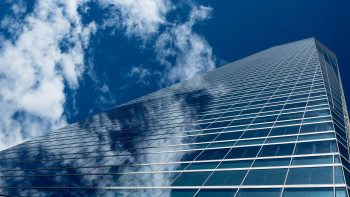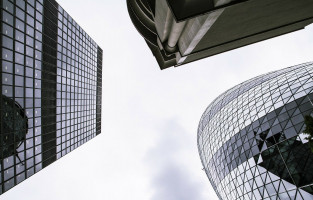Aegean Maritime Museum Travel Guide
Aegean Maritime Museum is located in Mykonos, Greece. This museum is dedicated to the maritime history of the Aegean Sea and showcases a remarkable collection of ancient artifacts, ship models, and nautical instruments. Mykonos itself is a picturesque island known for its charming white-washed buildings, beautiful beaches, and vibrant nightlife. The Aegean Maritime Museum offers visitors a glimpse into the seafaring traditions of the region and is a must-visit for history buffs and maritime enthusiasts.Top Attractions in Aegean Maritime Museum
- Delos Island
- Little Venice
- Windmills of Mykonos
- Paradise Beach
- Matoyianni Street
Aegean Maritime Museum is Famous for
Maritime history and ancient artifacts.Top Attractions in Aegean Maritime Museum
- Explore the ancient ruins of Delos Island
- Watch the sunset at Little Venice
- Visit the iconic Windmills of Mykonos
- Relax on the sandy shores of Paradise Beach
- Shop and dine along Matoyianni Street
What's Great about Travelling to Aegean Maritime Museum?
- Rich maritime history
- Beautiful beaches
- Vibrant nightlife
What's Not So Great about Travelling to Aegean Maritime Museum?
- Crowded during peak tourist season
- Expensive compared to other destinations
- Limited public transportation options
Travel Tips for Aegean Maritime Museum
- Check visa requirements before traveling
- Renting a car is a convenient way to explore the island
- Stay hydrated and use sunscreen during the hot summer months
Important Aegean Maritime Museum trip information
- Ideal Duration: 3-4 days
- Best Time to Visit: May to September
- Nearby Airports and Railway Stations: Mykonos Airport and Mykonos Port
Per Person
1,70,850
*EXCLUDING APPLICABLE TAXES 5.0 Ratings
( 393 Reviews )
( 393 Reviews )
Per Person
2,07,999
*EXCLUDING APPLICABLE TAXES 5.0 Ratings
( 393 Reviews )
( 393 Reviews )
Per Person
2,35,214
*EXCLUDING APPLICABLE TAXES 5.0 Ratings
( 393 Reviews )
( 393 Reviews )
Per Person
2,22,445
*EXCLUDING APPLICABLE TAXES 5.0 Ratings
( 393 Reviews )
( 393 Reviews )
Per Person
1,74,953
*EXCLUDING APPLICABLE TAXES 5.0 Ratings
( 393 Reviews )
( 393 Reviews )
Per Person
1,99,207
*EXCLUDING APPLICABLE TAXES 5.0 Ratings
( 393 Reviews )
( 393 Reviews )
FAQ's on Aegean Maritime Museum
Q1: What is the best time to visit Aegean Maritime Museum?
The best time to visit the Aegean Maritime Museum is during the spring and fall months, from April to June and September to October. During these periods, the weather is pleasant, and the tourist crowds are smaller compared to the peak summer season. Additionally, the museum hosts various events and exhibitions during these months, offering a richer experience for visitors.
Q2: Do I need a visa to travel to Aegean Maritime Museum?
Most visitors to the Aegean Maritime Museum do not require a visa for short stays. However, it's essential to check the specific visa requirements based on your nationality before traveling. EU nationals typically do not need a visa, but travelers from other countries may need to obtain a visa or a travel authorization before their visit.
Q3: What are the must-visit attractions in Aegean Maritime Museum?
The must-visit attractions in the Aegean Maritime Museum include the impressive collection of maritime artifacts, ship models, and exhibits showcasing the history of seafaring in the region. Visitors should not miss the iconic displays of ancient ships, navigational instruments, and maritime artwork. The museum's location in a historic building adds to its charm and significance, making it a top cultural destination in the region.
Q4: Is Aegean Maritime Museum a safe place to travel?
Aegean Maritime Museum is generally a safe place to travel, with low crime rates and a welcoming atmosphere for tourists. However, like any destination, travelers should be cautious of pickpocketing in crowded areas and stay alert, especially in tourist hotspots. It's advisable to secure your belongings and be aware of your surroundings to ensure a safe and enjoyable visit to the museum and its surroundings.
Q5: What is the local currency in Aegean Maritime Museum and can I use credit cards?
The local currency in the Aegean Maritime Museum is the Euro (€). ATMs are readily available in the area, and major credit cards are widely accepted at most hotels, restaurants, and shops. It's recommended to carry some cash for smaller purchases and in case of any establishments that do not accept cards. Notify your bank of your travel plans to avoid any issues with card transactions while visiting the museum.
Q6: What is the local cuisine like in Aegean Maritime Museum?
The local cuisine in the Aegean Maritime Museum region is a delightful mix of fresh seafood, Mediterranean flavors, and traditional Greek dishes. Visitors can savor grilled octopus, fresh fish, Greek salads, and local specialties like moussaka and souvlaki. Don't miss the opportunity to try local wines, olives, and cheeses for a complete culinary experience. Vegetarian and vegan options are also available at many restaurants, catering to diverse dietary preferences.
Q7: What transportation options are available in Aegean Maritime Museum?
Transportation options in the Aegean Maritime Museum area include public buses, taxis, rental cars, and ferries for island hopping. Public buses provide a convenient way to explore the region, with routes connecting major attractions and towns. Taxis are readily available for shorter trips or private transfers. Renting a car is ideal for exploring the surrounding areas at your own pace. For island excursions, ferries offer scenic journeys to nearby islands, adding an adventurous element to your travels.
Q8: Are there any cultural norms or etiquette I should be aware of when visiting Aegean Maritime Museum?
When visiting the Aegean Maritime Museum, it's important to respect local customs and etiquette. Dress modestly when visiting religious sites or traditional villages, covering shoulders and knees out of respect. Greeks are known for their warm hospitality, so greet locals with a friendly "Kalimera" (good morning) or "Kalispera" (good evening). Avoid discussing sensitive topics like politics or making negative comments about the country. When dining out, it's customary to leave a small tip for good service. Embrace the laid-back pace of life and enjoy the Mediterranean way of living during your visit to the Aegean Maritime Museum.
Q9: I am a travel agent. How can I buy travel leads of Aegean Maritime Museum?
Register yourself as a travel agent at agents.tripclap.com and then you can buy travel leads to Aegean Maritime Museum once your account is approved. For more details contact our support team at +91-8069186564 or support@tripclap.com






